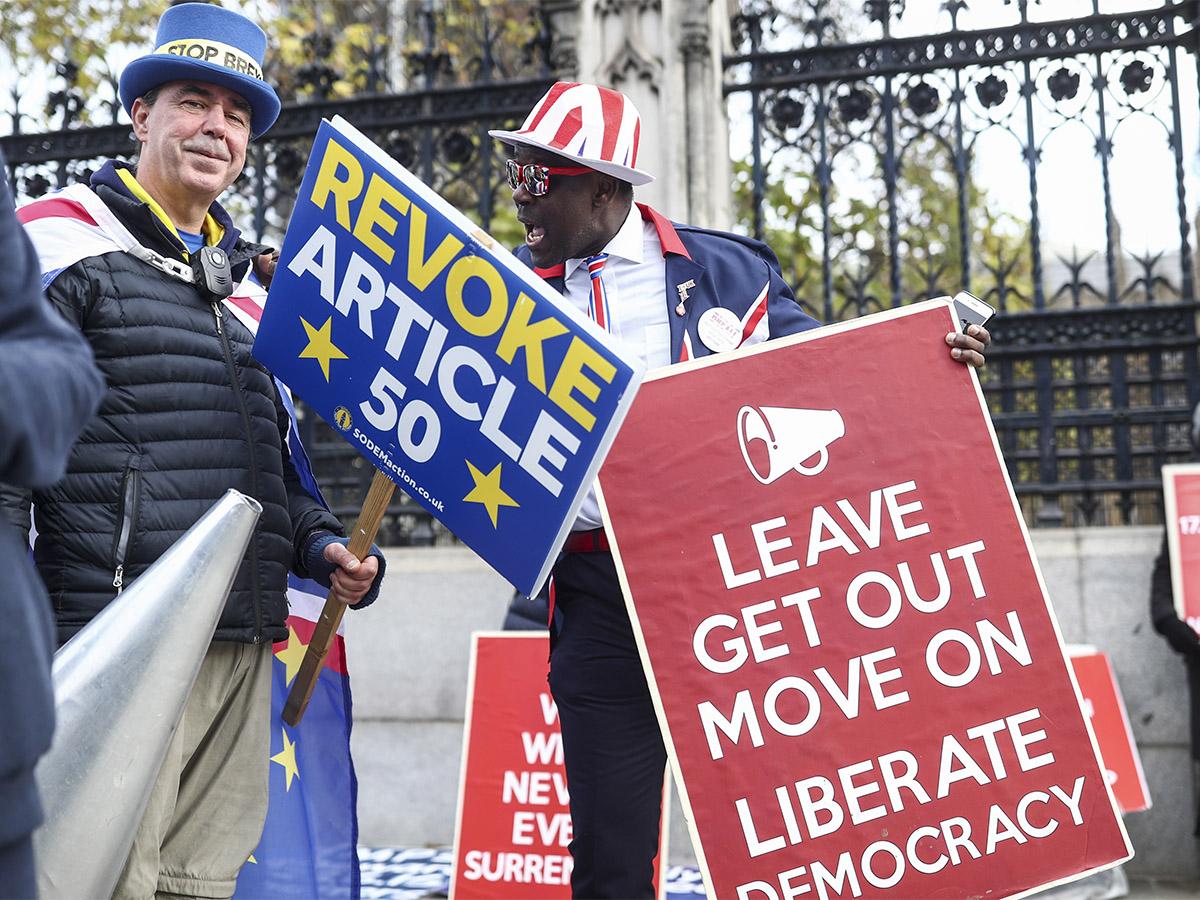One of the big battlegrounds this election is Brexit. Conservative leader Boris Johnson has promised to get his deal done if his party wins an outright majority. Opposition leader Jeremy Corbyn plans to renegotiate and put a deal to the UK public in a referendum, if Labour wins. We take a look at what this will mean for the FTSE 100, and UK stocks at large.
One thing is for certain: uncertainty over Brexit has held back the UK economy. If this continues, then traders will look to defensive stocks, which offer stability in the face of wider economic instability.
If the election ends uncertainty, confidence in the economy should return. In this situation, cyclical stocks that perform well in booming economies could soar. And coming after a market slump, there could be some bargains out there.
We pick out a few stocks that could flourish whatever happens.
Brexit uncertainty remains
The recent trend for defensive stocks is likely to continue if the election fails to lift Brexit uncertainty. So, look for healthcare stocks and consumer staples to continue to attract traders. Both sectors produce goods that the public demand irrespective of the form that the UK’s relationship with the EU takes.
In healthcare, GlaxoSmithKline [GSK] is up 17% this year, outpacing the FTSE 100's 9% gains. A healthy 5.25% forward dividend yield is one of the best on the FTSE 100.
17%
Amount GlaxoSmithKline's share price is up this year
UBS [UBS] upgraded its rating on GSK from 'Neutral' to 'Buy' in November. Analysts at UBS cited an upcoming HIV treatment that could generate revenues of $700 million by 2023. UBS placed a 1,900p price target on the stock - an 8.5% upside on the current share price.
In consumer staples, one play could be Unilever [UL]. This year Unilever's share price has delivered nearly 11% in gains. Its 3.13% forward dividend yield makes it an option for investors looking for a payout in uncertain times, too.
Associated British Foods [ABF] is another consumer staple that has had a good 2019. As the world's second-largest producer of sugar, Associated British Foods’ share price is up 24% this year. Analysts have pegged an average price target of 2,786.87p on the stock. Hitting this would represent an 8% upside on the current share price.
24%
Amount Associated British Foods’ share price is up this year
Clearer direction on Brexit
A clearer direction on Brexit should see markets pick up. If a deal looks like it will get through the next parliament without too much wrangling, then cyclical stocks could benefit. For bargain-hunting investors, tech and industrial stocks could be worth a look.
BAE's [BA.L] share price rose sharply when Boris Johnson emerged with his Brexit deal. Certainty over frictionless trade with Europe would certainly help the company. And its international projects insulate it against further uncertainty.
One manufacturer that has already sounded the alarm bells over a no-deal Brexit is Rolls-Royce [RR]. It has spent £100 million on contingencies for a no-deal Brexit and warned of disruption in the event of a disorderly exit.
More certainty would reduce cost outlays at the firm. If confidence returns, then analysts are looking at an average 974.81p price target - a huge 37% upside on the current price. Rolls-Royce's share price is down over 12% this year as Brexit uncertainty weighs on the stock.
Tech stock Micro Focus's [MCRO] share price tanked 32% at the end of August as it warned it would miss sales targets. At the time, Micro Focus blamed the "deteriorating macro environment" for causing a delay in decision making from its corporate customers.
32%
Amount Micro Focus’ share price is down this year
Among banking stocks, Lloyds’ [LLOY] share price may gain post-election. The bank is often considered a bellwether for the UK economy and its mortgage and credit businesses could benefit from renewed consumer confidence.
More on the UK general election
Never has a UK general election promised to galvanise the UK financial markets as much as this one. In our election analysis, we look at what will happen if the Conservatives or Labour win an outright majority. And what a hung parliament will do to the markets.
Continue reading for FREE
- Includes free newsletter updates, unsubscribe anytime. Privacy policy





